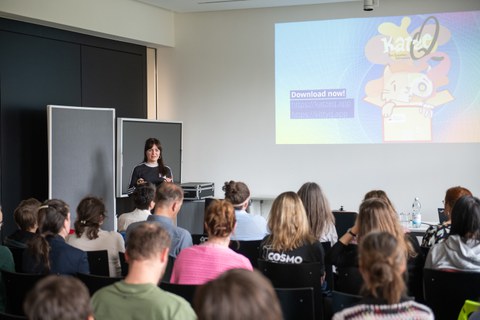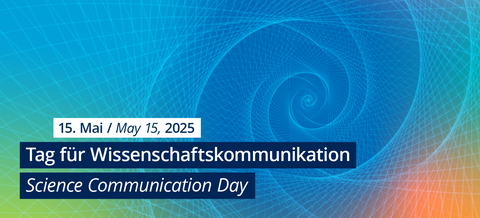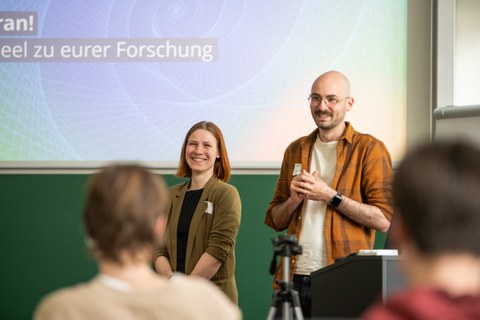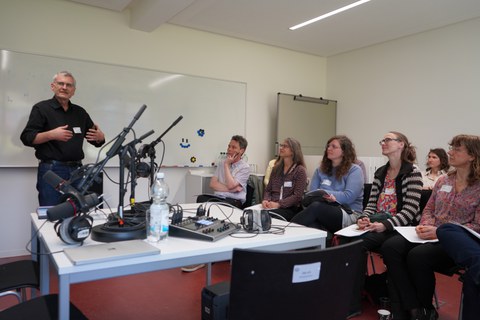Science Communication Day
On May 15, 2025, the Day for Science Communication took place for the first time at TU Dresden. The event offered a versatile platform for TUD´s researchers and communications managers to learn about science communication, build up their skills in this area, and to network with each other. It is part of the TUD's science communication initiative to improve skills in the field of science communication.
In inspiring keynote speeches, interactive workshops and personal exchanges, participants gained valuable insights into how research findings can be translated into understandable and comprehensible content. The successful premiere made it possible to set new impulses and sustainably strengthen the network for science communication at the TUD.

Benedikt Fecher, Managing Director of Wissenschaft im Dialog, Beatrice Lugger, Science Communication Consultant (formerly NaWik), Dirk Brockmann, Director of the Center Synergy of Systems (SynoSys), Sven Engesser, Professor of Communication Science, and Marion Schmidt, CCO of TUD, discussed in the opening panel what science communication must achieve nowadays.
Following the opening panel, many further questions on science communication were discussed: How can the connection between science and society be strengthened? What ideas and formats could help to improve science communication in order to interact effectively with society and promote understanding of complex research topics?
The workshops held on the Science Communication Day provided TUD researchers and communications officers with training on how to present research findings in a way that is understandable and tailored to specific target groups for use on social media, in visualizations, and in infographics. Another workshop taught how to create meaningful evaluations for science communication and why they are important.
In the workshop "Science in your ear: podcasts as a communication tool", participants received tips on podcast creation and attended the recording of "Food Facts - the TU Dresden food chemistry podcast".
Participants were also given advice on how to deal with hostility towards science and attacks and what Scicomm support offers for this.

Best practice exchange in the afternoon: How can physics be explained in a playful way using an app? What interactive exhibitions does the COSMO Science Forum organize? What formats of science communication can young scientists use? This and much more was presented and discussed during a look at practical examples of successful formats of science communication at TUD.
The first Science Communication Day concluded with the first-ever presentation of the TUD Award for Excellent Science Communication in the ballroom of the Rectorate Building.
Information on the Science Communication Day 2026 will be published here in good time.
If you have any questions about the Science Communication Day, please contact the Directorate Communication and Marketing by e-mail at .
Funded by the Federal Ministry of Education and Research (BMBF) and the Free State of Saxony as part of the Excellence Strategy of the Federal and State governments



